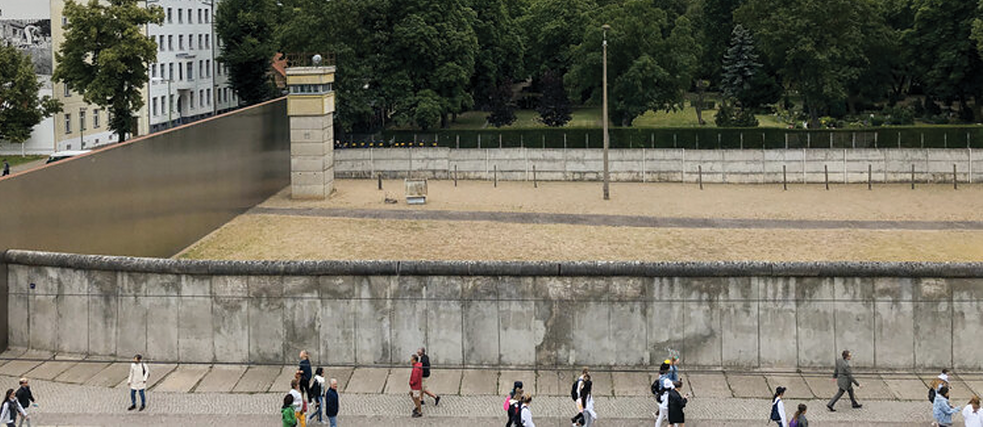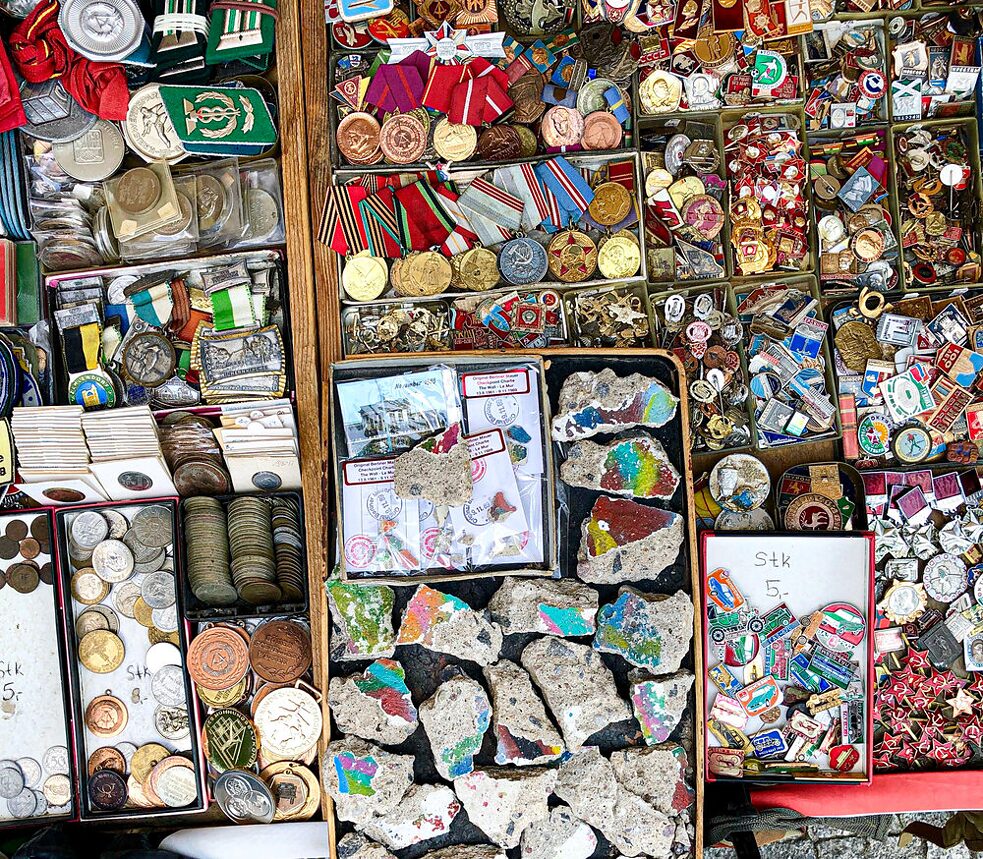The changing nature of monuments
The Berlin Wall’s Second Act

Cheyenne Concepcion reflects on her time in Berlin, especially around the ways the formerly divided city offered a site to engage borders and monumentality back in the U.S. while inquiring about the (after)lives of border walls as sites to reckon with legacies of division.
By Cheyenne Concepcion
Before arriving in Berlin, I presumed I would learn about the physical conditions of the Berlin Wall in relation to our wall along the U.S.-Mexico border. I thought I’d draw connections between the security architecture of German Democratic Republic and the medieval solutions we are coming up with today in America. Instead, I learned more about what comes next. I learned about what happens after a border wall no longer needs to function as a barrier to migration, and when it transitions into its second act.
Before the fall of the Berlin wall, the wall as a monument symbolized lack of freedom under communism and division prompted by the Cold War. Since reunification and after its fall, this symbolism still seems to linger, though now accompanied by guilt. On our research trip, we visited many memorials and preserved sites of memory. These sites seem to have been directly influenced by pressures of tourism, foreign investment and most commonly government-funded initiatives. What are the spatial repercussions of these competing interests and how do monuments get utilized to achieve these agendas? And at what point does a monument's symbolism get re-defined, and for whom?
Coming away from this trip, I want to explore, analyze, criticize and re-represent this convergence of interests of these various parties onto the socio-political environment associated with memory culture. I believe researching and analyzing the politics of this space are absolutely connected to my own research interests at home, in San Francisco and San Diego. I hope to build on this theory of the monument's second life.
 Photo: Cheyenne Concepcion, 2019
Photo: Cheyenne Concepcion, 2019